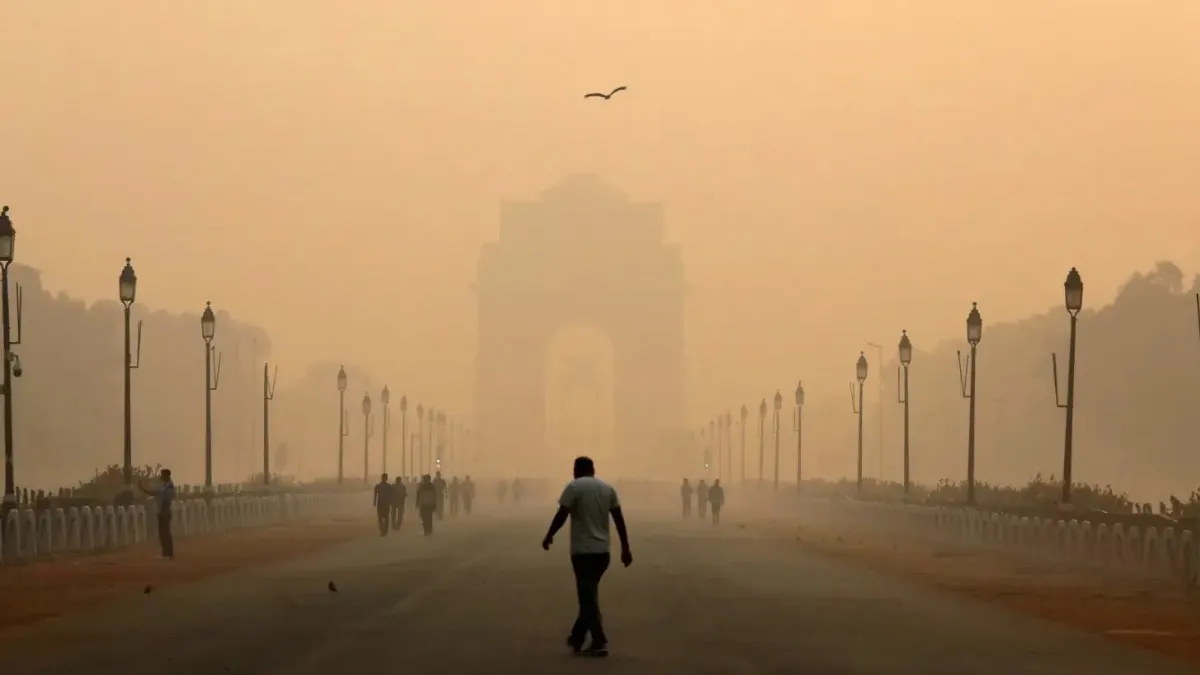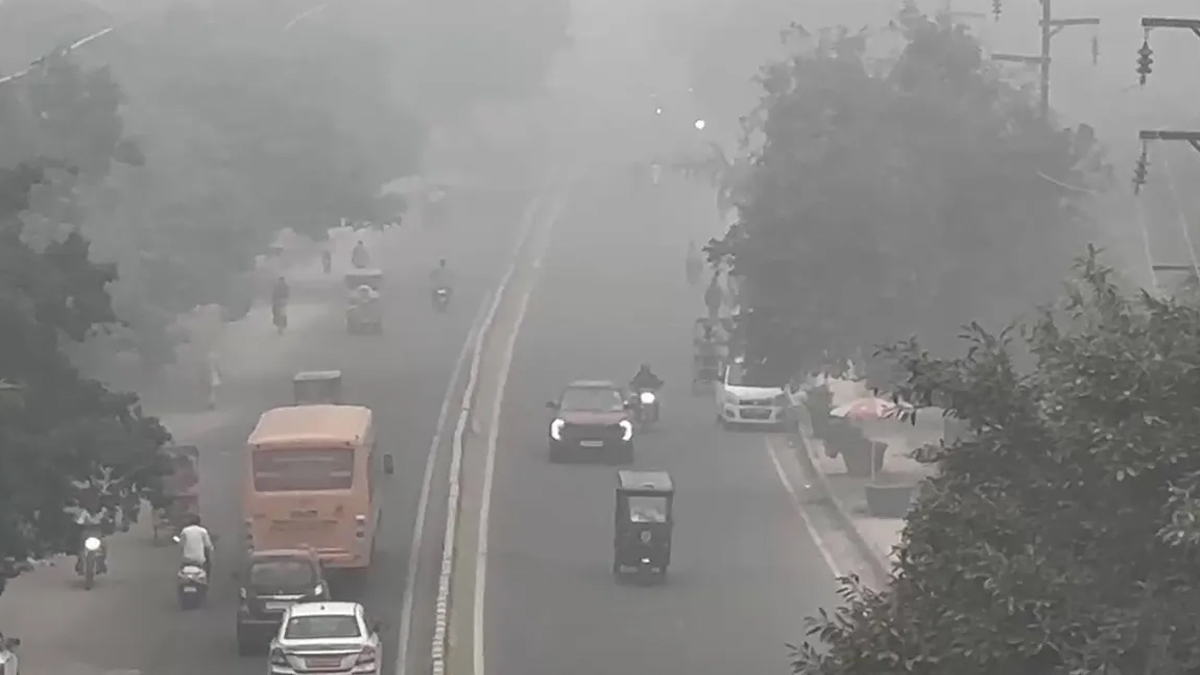
Delhi’s air quality has plunged into the "severe plus" category, prompting authorities to implement the most stringent anti-pollution measures under Stage 4 of the Graded Response Action Plan (GRAP). With an Air Quality Index (AQI) reading of 485 recorded on Monday morning, the city faces a dire health crisis. This alarming figure, which significantly exceeds the threshold for hazardous air quality, has forced the administration to introduce urgent restrictions aimed at curbing pollution and safeguarding public health.
Table of Content:-
What Does 'Severe Plus' Air Quality Mean?
The AQI is a scale used to gauge air pollution levels. While an AQI between 0 and 50 is deemed "good," readings above 450 are categorised as "severe plus," signalling a serious threat to health. Persistent exposure to such hazardous air can lead to respiratory illnesses, cardiovascular issues, and other severe health problems, especially for vulnerable groups like children, the elderly, and those with pre-existing conditions.

Emergency Restrictions: Key Measures Under GRAP-4
To combat the deteriorating air quality, the Commission for Air Quality Management (CAQM) has rolled out an eight-point action plan, applicable across the National Capital Region (NCR). These measures aim to limit emissions from various sources, including vehicles, construction, and industrial activities.
- Truck Restrictions: Entry of non-essential trucks into Delhi is now banned. Exceptions are limited to trucks carrying essential commodities or operating on cleaner fuels such as CNG, LNG, or electric power.
- Light Commercial Vehicle (LCV) Limits: LCVs registered outside Delhi are prohibited unless they are electric, CNG, or comply with BS-VI emission standards. Vehicles involved in essential services are exempted.
Also Read: Delhi Air Pollution: Air Quality Remains 'Very Poor' as AQI Soars Past 500 in NCR
- Diesel Vehicle Ban: Delhi-registered diesel vehicles below BS-VI standards face strict prohibitions. Medium and heavy goods vehicles are only allowed entry if transporting essential goods.
- Construction and Demolition Ban: All construction and demolition activities, including infrastructure projects like roads and power lines, have been halted to reduce dust pollution.
- Shift to Remote Learning: Schools have transitioned to online classes, with the exception of grades 10 and 12, who will continue in-person studies due to ongoing board preparations.
- Workplace Adjustments: Government, municipal, and private offices must operate at 50% capacity, while the rest of the workforce works remotely.
View this post on Instagram
The Role of Weather and Stubble Burning
The worsening air quality is exacerbated by a combination of factors, including adverse weather conditions and stubble burning. According to SAFAR, a government-backed air quality monitoring agency, crop residue burning in Punjab and Haryana accounts for nearly 38% of the pollution in Delhi. The practice peaks during winter when farmers clear their fields for the next sowing season. Coupled with stagnant wind patterns, high humidity, and plummeting temperatures, the pollutants become trapped, forming a thick layer of smog over the city.
Also Read: Dengue Cases Soar Past 175 In Gurugram, Prompting Urgent Preventive Action By Authorities
Health Concerns and Public Response
Residents of Delhi are reporting an increase in respiratory ailments, including chronic coughing, throat irritation, and breathing difficulties. Hospitals have seen a surge in cases, with doctors advising the public to minimise outdoor activities, wear masks, and use air purifiers indoors.
Citizens have expressed frustration over the recurring pollution crisis. Many blame inadequate enforcement of pollution control measures and delayed action against stubble burning. Public health experts have urged for long-term solutions, such as incentivising cleaner agricultural practices and stricter industrial regulations.
Possible Additional Measures
As conditions remain critical, authorities may introduce further restrictions. Proposed steps include closing higher education institutions, implementing odd-even vehicle rules, and suspending non-essential commercial activities. These measures, though disruptive, may be necessary to protect public health.
Bottomline
Delhi’s recurring air pollution crisis serves as a grim reminder of the urgent need for systemic change. While emergency measures provide temporary relief, long-term solutions must address the root causes of pollution, including stubble burning, vehicular emissions, and industrial activities. Without sustained efforts and cross-state cooperation, the national capital will continue to grapple with hazardous air quality, jeopardising the health of millions.
Also watch this video
How we keep this article up to date:
We work with experts and keep a close eye on the latest in health and wellness. Whenever there is a new research or helpful information, we update our articles with accurate and useful advice.
Current Version